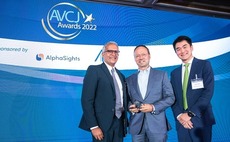
A significant birthday
Among the various events that have contributed to the development of private equity in Asia over the 30 years since AVCJ was established, three stand out as particular game changers
Digging deep into our archives in preparation for the 30th anniversary of the establishment of AVCJ has offered numerous insights into how much Asian private equity and venture capital has evolved over the past three decades. With the benefit of hindsight, there are three key macroeconomic events that I believe were instrumental in creating the industry as we know it today.
When the first issue of Asian Venture Capital Journal was published in January 1988, institutional private capital essentially didn't exist as a source of financing for Asian companies. Many of the early deals were greenfield venture capital transactions and not necessarily technology-focused, as evidenced by Inter-Asia Venture Management's joint ventures to launch McDonald's and IKEA in Hong Kong (as well as AVCJ itself). For most of the 1990s, Asian VCs (as they liked to be called back then) invested in what one of my predecessors referred to as "corporate scraps," i.e. minority stakes in JVs or pre-IPO deals involving corporate subsidiaries.
The industry got its first "big break" during the Asian Financial Crisis of 1997, which battered the economies of Japan, South Korea and Southeast Asia, reducing their once highflying conglomerates to distressed assets shaking under the weight of their debts. The buyout opportunities arose as these companies were forced to sell subsidiaries (and in some cases themselves) attracted a number of renowned buyout players to Asia. Deals such as Good Morning Securities, Long Term Credit Bank of Japan and Korea First Bank generated huge profits for investors.
Venture capitalists got their turn during the 1999-2000 dotcom boom. Although a global phenomenon, many Asian information technology companies, particularly those focused on the up-and-coming Chinese market, were suddenly in huge demand. NASDAQ listings at incredible valuations resulted, but these multiples didn't last long as boom turned to bust. Nevertheless, it was during these times that the likes of Alibaba Group, Baidu and Tencent Holdings found their feet, laying the foundations for the current tech sector hegemony.
Tied to that is what I would argue is the biggest factor, the effects of which are still being felt today: China's emergence as an economic superpower. Triggered by its induction into the WTO in 2001, China soon became Asia's preeminent destination for private equity and venture capital investment. It has dominated the annual fundraising, investment and exit rankings ever since. Nowadays, the impact is not only felt locally because many Chinese GPs have extended their mandates to include overseas companies that want to access growth opportunities within China.
Other geopolitical events have happened since then, including the global financial crisis, but I believe the aforementioned three have played the most significant role in shaping the industry. There are of course countless other stories woven into the tapestry of Asian private equity, some no less memorable for being micro rather than macro developments. The basic formula for success remains much the same as it did 30 years ago – find the right team in the right industry at the right time – although execution has become more complex as the industry has grown.
You might be interested to know that inaugural issue of Asian Venture Capital Journal included a profile of Arral & Partners, the fabled firm co-founded by Anil Thadani. Investments included Universal Furniture, which in 1984 became the first Asian company to list in the US – earning its financial sponsor a more than 3x return, but perhaps just as important, a place in history.
Latest News
Asian GPs slow implementation of ESG policies - survey
Asia-based private equity firms are assigning more dedicated resources to environment, social, and governance (ESG) programmes, but policy changes have slowed in the past 12 months, in part due to concerns raised internally and by LPs, according to a...
Singapore fintech start-up LXA gets $10m seed round
New Enterprise Associates (NEA) has led a USD 10m seed round for Singapore’s LXA, a financial technology start-up launched by a former Asia senior executive at The Blackstone Group.
India's InCred announces $60m round, claims unicorn status
Indian non-bank lender InCred Financial Services said it has received INR 5bn (USD 60m) at a valuation of at least USD 1bn from unnamed investors including “a global private equity fund.”
Insight leads $50m round for Australia's Roller
Insight Partners has led a USD 50m round for Australia’s Roller, a venue management software provider specializing in family fun parks.








